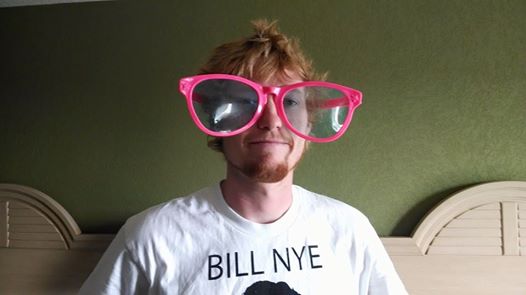Representing the University of Utah and advised by mechanical engineering associate professor Mark Minor, the RoboUtes student organization, which is a group passionate about robotics, were one of eight universities invited to compete in the annual RASC-AL Planetary Exploration Robo-Ops Competition (i.e., Robo-Ops). Robo-Ops is an engineering competition sponsored by NASA and organized by the National Institute of Aerospace, held at NASA’s Johnson Space Center in Houston, Texas June 3-5.
Leading up to the competition the team shared some of the logistics involved in competing by holding an open house. Visitors met COLE mk V, the Cellular Operated Land Explorer (robot) and COLE’s mission control center.
They learned that the objective of the competition is for an orbiting spacecraft to communicate directly with a land rover on Mars. In this instance the orbiting spacecraft is mission control here at the University of Utah that controlled Cole mk V’s every move during the competition on Mars (Texas).
Prof. Minor said, “The team designed an excellent robot this year. Mobility, communications, and mission control systems were rock solid. Their novel serial-continuum manipulator arm with an under-actuated five-finger hand gained praise from all participants. The manipulator and hand worked flawlessly through testing and post competition, but there was an unfortunate sensor malfunction moments prior to competition that could not be recovered in time to compete. The team recovered mobility system control in time to show off the excellent scouting capabilities of the robot during their time slot, but the team was not able to score points due to the sensor malfunction. The team made a valiant effort and achieved many impressive accomplishments.”

Just for fun here is the timetable of events as they unfolded on Facebook: (Visit page for videos and images)
June 1: Houston or bust!!
June 2: COLE mk V to mission control. We have Houston touchdown.
June 3: COLE MARK V is doing some serious rock crawling at the JSC rock yard today!
June 3: Weigh in time! 42.6 KG. As the second heaviest rover, we compete at 10am central.
June 4: Houston, we have a problem….. taking our mulligan to fix the robot
June 4: It was not an electrical failure… mechanical bonding failure between the pot and the gear that drives it. The kind of thing that works for 6 months, and then fails 30 minutes before it needs to work.
June 4: You killed it on that test run, there’s no doubt in my mind you could have won this. Bad luck at a bad time.
June 5: RoboUTES away team meet astronaut “Cady” Coleman at the JSC rockyard.
June 5: Cole Mk V racing through the gates at the Robo Olympics.
June 5: Visiting space station mission control. Very cool!
June 6: We received several “rascy” awards last night. Here Jonathan is showing off our award for the “Best Precursor Mission” based upon our robot mapping out so many rocks for the other teams following us.
June 6: We also received the Rock Paper Scissors award. Apparently our mission control was spotted doing this ritual on the stream just before the event started.
June 6: This is our “Chivalry” award received for out robot shaking hands with Shelly Spears, program organizer.
RoboUtes RASC-AL Robo-Ops Mission Control 2014:
Logistics Officer Jonathan Davies. Chief Engineer Kristoffer Edlund. Master Sergeant David Van Ness. Commander Michael James Bills.
RoboUtes RASC-AL Robo-Ops Away Team 2014:
Jonathan Bruns, Matthew Monahan, Aaron Wernerehl
The Department of Mechanical Engineering at the University of Utah is committed to providing students with broad-based, rigorous and progressive education. By combining state-of-the-art facilities with renowned faculty, the department provides an education that gives students the necessary skills to become the next generation of innovators.